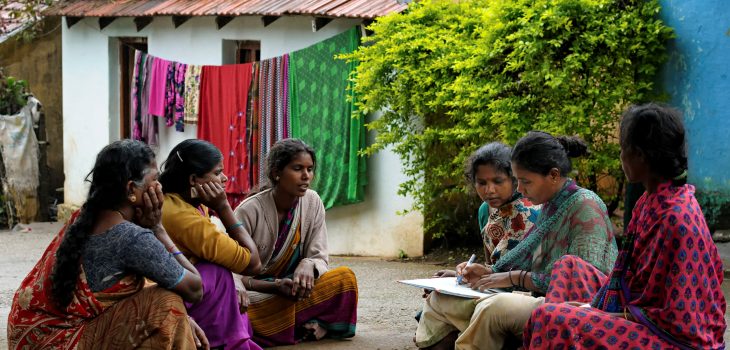By Bridget Pratt (University of Melbourne)
The status quo: Communities lack a say
Community engagement is gaining prominence in global health research. Growing consensus about the importance of community representation and participation for ethical research means research institutions and funding bodies now promote, or even mandate, community engagement as an important component of “traditional” non-participatory health research projects. They increasingly expect global health researchers to engage with communities throughout the research process.
In practice, however, global health research priority-setting is dominated by funders and researchers, often from high-income countries. Communities, particularly those considered disadvantaged and marginalised, rarely have a say in setting the research topics and questions of global health research projects.
What’s needed to ensure meaningful engagement?
So how can global health research put its money where its mouth is (so to speak)? And ensure that mandates and calls for engagement throughout research projects, which includes during agenda-setting, happens in a meaningful way rather than tokenistically?
I’ve been exploring that question through my research for the past few years. As part of this work, I’ve been speaking to researchers, ethicists, community engagement practitioners, community organisation staff, community researchers, community leaders, and others in the community about what’s necessary to share power in global health research priority-setting. And while I don’t have all the answers, my work can offer some initial recommendations for what researchers and their community partners can do before, during and after agenda-setting for their research projects.
For global health research projects’ topics and questions should reflect the voices and needs of marginalized communities, their engagement in priority-setting must be carried out in a particular way.
Before priority-setting
Before priority-setting, it is important to ensure that the research team includes partners from community organisations, ideally from those that genuinely represent or have solid relationships with marginalized communities. It is also important to assess for whether the contextual factors necessary for meaningful engagement are present or can be built with the community of focus. For example, building trust is essential in settings where there is a prior history of exploitation by researchers:
You won’t get marginalised groups unless you actively go out there and spend quite a lot of time overcoming those barriers which are that you are a researcher and we’ve had researchers come through here before and they use us and spit us out. (Global health researcher, Australia)
It’s also essential that researchers be open-minded and not buy into hierarchies of knowledge. Researchers should be:
Open to the idea that communities know their needs much more than we can ever know. (Ethics researcher, Kenya)
During priority-setting
During priority-setting, it is vital to implement strategies for sharing power between researchers and communities across 12 features of the priority-setting process. For example, in areas like framing and stage of participation. Sharing power means having an ‘open’ scope during priority-setting: no or very few research topics related to health are off the table. This gives the opportunity to be much more responsive to what the community sees as a priority. Where structural factors prevent having a completely open scope for what research topics can be set for a global health research project, sharing power means being clear and honest about these constraints before starting priority-setting.
Involving community members and community organisation partners from the very beginning of the priority-setting process is another key way of sharing power. This means engagement starts when developing funding applications and identifying possible research topics, rather than waiting until intervention design:
[T]he ideal thing would be for the topics to be defined by the community itself, so what are their issues, you know what is pressing at the moment. . . so talk to the community before the topic’s defined and then you know make sure that that’s represented in the topic. (Community Organisation staff member, Australia).
After priority-setting
After priority-setting, it is essential to demonstrate respect and accountability to such communities.
Role of funders and universities
In addition to these recommendations for researchers’ practice, it’s imperative that funders and universities come to the table. We need funding models that support relationship-building and community engagement in agenda-setting for global health research projects. Changes to how researchers are trained are needed as well. Which could mean ensuring that higher degree research programs at universities cover engagement skills and participatory methods.
Where to from here?
So ultimately there’s a lot that researchers, their partners, funders and universities can do to change the status quo and help ensure that communities have a say and are heard when setting global health research agendas. To assist researchers and their partners, I’ve been developing an “ethical toolkit” to help them design priority-setting processes that meaningfully include the communities impacted by their projects. The toolkit comprises a reflective project planning aid for use before priority-setting is undertaken for global health research projects. Its use will promote power-sharing in priority-setting and help deliver projects with research topics and questions that more accurately reflect communities’ health care and system needs. (The toolkit is available upon request at bridget.pratt@unimelb.edu.au).
Related link
· Towards inclusive priority-setting for global health research projects: recommendations for sharing power with communities
Bridget Pratt
Health Policy and Planning, https://doi.org/10.1093/heapol/czz041
Image
All photographs are original contributions by Bhargav Shandilya and are licensed under a Creative Commons Attribution-NonCommercial-ShareAlike 4.0
This photograph series was developed for a research project titled “Participation for local action: improving access to maternal health services for indigenous communities in south India” (2014-16). This project is implemented by Vivekananda Girijana Kalyana Kendra in partnership with the local indigenous community, and Chamarajanagar district health team, under the guidance of a team of public health researchers in Karnataka. This research is supported by the WHO Alliance of Health Policy and Systems Research under its decision maker-led implementation research platform.
Link to the project webpage https://iphindia.org/project/implementation-research-project/











